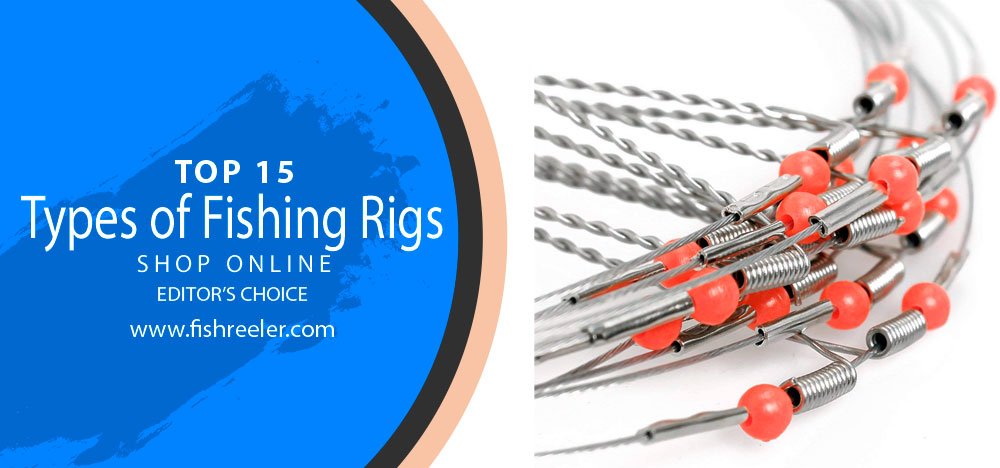
Bait, Cast, Reel: The Comprehensive Guide to Different Fishing Rigs
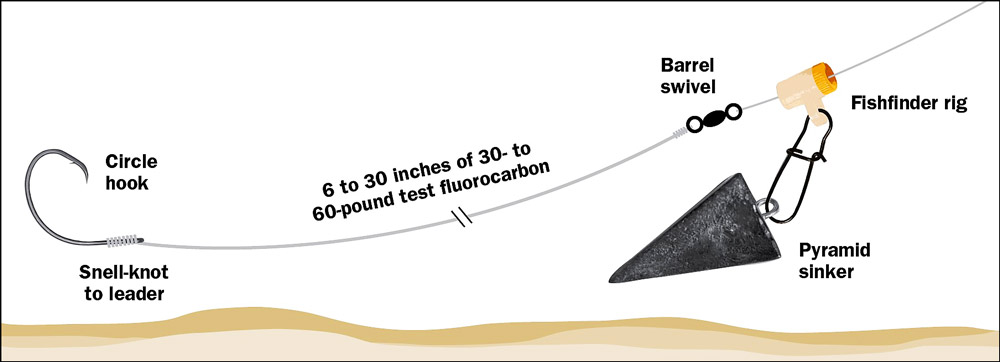
Fishing and I go way back. My earliest memory of it was when I was a young kid barely tall enough to peek over the edge of the dock. I remember the glint of the sun on the water, the smell of the lake, and the thrill of feeling a tug on the line for the first time. 🌅
🎣 Setting Sail: The Story of a Passionate Angler
Fishing, for me, has always been about more than just the catch. It’s about the anticipation, the patience, and the pure joy that comes from being in tune with nature. Every fisherman knows that the right tools are essential for the job. But one tool, in particular, stands out in its importance – the fishing rig. 🎣
Fishing rigs, in their varied forms, are the backbone of fishing. They connect the angler to the fish and act as the critical bridge between the bait and the catch. They are a testament to our ingenuity and love for the sport. 🐠🐟
🔶This article is dedicated to helping you understand and navigate the world of fishing rigs. We’ll go over the basics and delve deep into various types, their uses, and how to set them up. Whether you’re a novice angler or a seasoned pro, I hope to share the knowledge I’ve gleaned from my years of fishing and love for this age-old pastime. So grab your fishing rod, let’s dive into the fascinating world of fishing rigs! 🌊🚣♂️
🧭 Reeling into Rigs: Unveiling the Backbone of Fishing
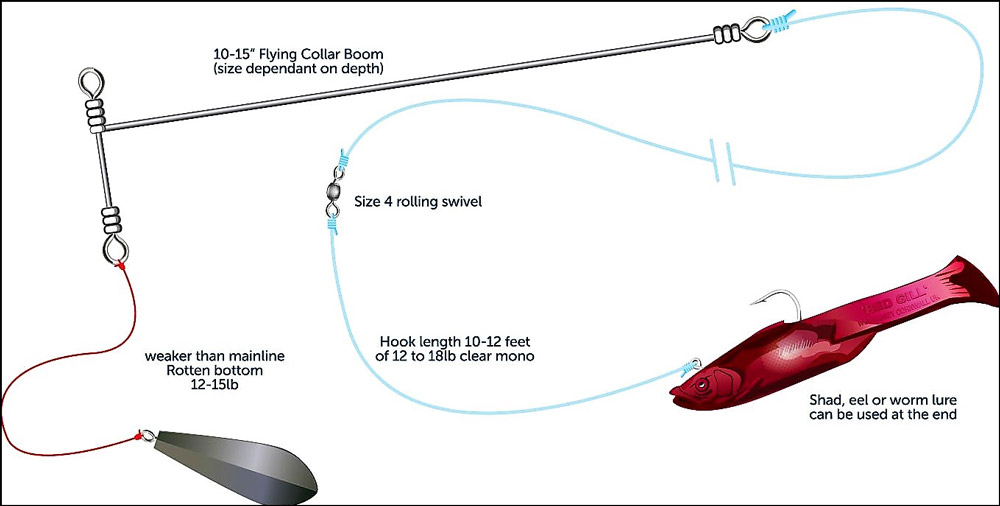
So, what exactly is a fishing rig? In its simplest terms, a fishing rig refers to the way you tie together bait, lures, hook, swivels, leaders, sinkers, bobbers, flashers, dodgers, cheese, and other fishing gear. It’s essentially the arrangement of your fishing tackle. 🎣🪢
A fishing rig can be as straightforward or as intricate as you want (or need) it to be. The key lies in understanding that a rig is designed to present your bait in the most natural and enticing way to the fish you aim to catch. 🐟
The role of a fishing rig is multifold. It’s not just about catching the fish; it’s about how you catch it. The right fishing rig ensures your bait behaves in a way that will attract the specific type of fish you’re after. It makes the difference between a good day of fishing and an extraordinary one. 🌟
Different fishing situations call for different rigs. For instance, you might need a rig that can handle heavy currents, one that can float at varying depths, or one that can sink to the bottom. Your choice of rig can change based on the type of fish you’re after, the fishing environment, and your personal fishing style. 🌊🐠
Whether you’re casting your line in a tranquil lake, wading in a bubbling stream, or deep-sea fishing, the fishing rig is your most crucial ally. It bridges the gap between you and the underwater world, turning the sport of fishing into an art. 🏞️🌅
🔶Stick around as we dive deeper into the world of fishing rigs, their types, uses, and some expert tips to elevate your fishing experience. 🚀
🎯 The Perfect Catch: Why the Right Rig Matters
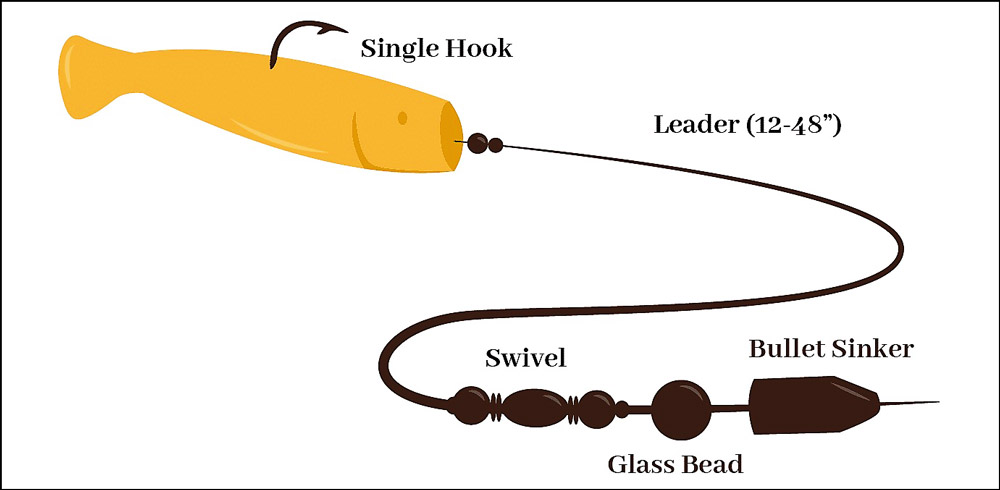
Choosing the right rig is akin to choosing the right bait; it can make or break your fishing experience. But what does ‘the right rig’ really mean? How does it amplify your fishing success? Let’s delve into it. 🤔🔍
Imagine you’re out at sea, the sun is setting, and you’ve got the perfect bait. You cast your line into the water, and wait. The moment arrives – a tug on the line! Excitement surges through you. But alas! The fish slips away. Why? The culprit could be a rig that wasn’t right for the situation or the fish. 🌊🐟
A well-selected fishing rig enhances the presentation of your bait, making it irresistible to the fish. It can improve your casting distance, manage line twist and, most importantly, it can handle the weight and fight of the fish once hooked. A carefully chosen rig is your secret weapon to outsmart the underwater world. 🎣💪
When choosing a fishing rig, there are a few crucial factors to consider:
- Type of Fish: Some rigs are designed specifically for certain species of fish. Knowing your target fish will guide your rig choice. 🐠🐡
- Location: The fishing environment significantly influences your rig selection. Different rigs are suitable for lakes, rivers, ponds, or sea. 🏞️🌊
- Fishing Style: Whether you prefer surf fishing, fly fishing, trolling, or bottom fishing, there’s a rig for every style. 🎣💃
Remember, there’s no ‘one-size-fits-all’ when it comes to fishing rigs. It’s all about adapting to the conditions and the behavior of the fish.
🔶Your flexibility and readiness to try different rigs are what will set you apart as an angler. As we move onto the various types of fishing rigs, keep these factors in mind, and soon enough, you’ll be on your way to achieving the perfect catch! 🚀🏆
🎦Video YouTube: Fishing rigs – Bait fishing rigs for catfish, bass, trout – how to fish
🎣 Rigging the Catch: Exploring Different Types of Fishing Rigs
Just as there are different strokes for different folks, there are different rigs for different fishing scenarios. Let’s cast our nets wide and discover the various types of fishing rigs and their uses.
Mastering the Basics: The Simple Fishing Rig
The Basic Fishing Rig is your go-to for a simple, hassle-free fishing experience. It’s perfect for beginners but is equally effective for experienced anglers. It consists of a hook attached to the line, with a weight or sinker clamped some distance above it. 🪢🪝
Ideal for fishing in ponds, lakes, or calm seas, this rig lets your bait sink naturally, creating a tempting setup for fish. Whether you’re after bass, trout, or catfish, the Basic Fishing Rig is your reliable companion. To set it up, tie your hook to the line, then attach a sinker 1-2 feet above it. Simple, yet effective. 🐠🐟
Floating to Success: The Magic of Float Fishing Rig
The Float Fishing Rig, also known as a bobber rig, is an absolute winner when you want your bait to suspend above the bottom, teasing fish that swim at different depths. It involves a hook, a sinker, and, of course, a float or bobber. 🎈🪝
It’s perfect for fishing in shallow water bodies where fish are likely to be found near the surface. To set it up, tie a hook to your line, attach the sinker a little way above it, and then clip your float a few feet above the sinker. The float’s position can be adjusted based on the depth at which the fish are feeding. 🎣
Hitting the Bottom: The Power of Ledgering Rigs
The Ledgering or Bottom Fishing Rig is designed to lie on the sea or river bed, making it a great choice when targeting fish that dwell near the bottom. This rig includes a hook, a leader, and a weight. The weight helps keep the rig grounded while the leader allows the bait to float enticingly above. 🏋️♀️🎣
Ideal for sea fishing or river fishing, you can use this rig when you’re after species like carp, catfish, or cod. To set it up, tie the leader to your main line with a swivel, attach the weight to the end of the main line, and tie your hook to the other end of the leader. Your bait will now ‘hover’ above the bottom, ready to tempt any passing fish. 🐠🌊
Pop-Up Rig
The Pop-Up Rig is popular among carp anglers for its ability to present the bait in a ‘hovering’ manner, mimicking a free-floating morsel that’s hard to resist. It involves a hook, a pop-up bait (one that floats), and a small weight or split shot to balance the buoyancy. 🎈🪝
Ideal for carp fishing, to set it up, thread your main line through the eye of your hook twice, forming a loop that you’ll place the pop-up bait in. Secure it with a bait stop. Then, attach the small weight or split shot on the hook’s shank to balance the bait. 🐟🏊
Hair Rig
The Hair Rig revolutionized carp fishing by presenting the bait off the hook, making it look more appealing and natural to the fish. It consists of a hook and a ‘hair’ line extension where the bait is attached. 💇♀️🪝
Perfect for carp and catfish, you set it up by tying a small loop (the ‘hair’) at the end of your line, then tying on the hook so that the ‘hair’ extends from the back. The bait is then threaded onto the ‘hair’ and secured with a bait stop. 🐠🎣
Carolina Rig
The Carolina Rig is a bottom fishing tactic and a favorite among bass anglers. It involves a hook, a leader, a weight, and a bead to protect the knot. This rig allows the bait to move freely, making it enticing to fish. 📿🪝
Ideal for fishing in deep waters or grassy areas, it’s primarily used for bass. You set it up by threading your line through the weight, then the bead, then tying on a swivel. A leader is then tied to the other end of the swivel, with the hook at the end of the leader. 🐟🏞️
Texas Rig
The Texas Rig, designed for catching bass, is excellent for fishing through heavy cover without getting snagged. It involves a hook, a soft plastic lure, and a slip sinker. 🎯🪝
Ideal for catching bass in both shallow and deep waters, you set it up by threading your line through the sinker, tying the hook, and then attaching the soft plastic lure onto the hook. It provides a weedless presentation, making it perfect for fishing in grassy or covered areas. 🐟🌿
🔶Understanding and choosing the right fishing rig is key to a rewarding fishing experience. Remember, practice makes perfect. So go ahead, rig it, cast it, and reel in the joy of fishing! 🚀
The 14 Best Types of Fishing Rigs – Editor’s Choice
The lure of the water, the thrill of the chase, and the satisfaction of a good catch – these are experiences that fishing enthusiasts live for. But beyond the beautiful vistas and the serenity that comes with being one with nature, fishing is a craft, an art form that requires skill, patience, and a deep understanding of your tools. Among the most vital tools in an angler’s arsenal are fishing rigs.
Fishing rigs, the specific configurations of hooks, lines, sinkers, and bait, are the critical connection between the angler and the elusive catch. They are carefully designed structures that can significantly enhance your fishing experience when chosen correctly. From the tranquil banks of freshwater lakes to the unpredictable waves of the open sea, different scenarios call for different rigs. This blog post dives into the best types of fishing rigs, helping you understand their uses, strengths, and why they could be your game changer the next time you head out for a day of fishing. Let’s set sail into the world of fishing rigs!
1# AIRKOUL Wire Trace Leader 2 Arm Fishing Rigs
2# Scotank Fishing Leader Wire Tooth Proof 7 Strand Rig
3# End Game Tackle Company Deep Drop Fishing Rig
4# YOTO 12/24PCS Fishing Rig
5# JSHANMEI 12pcs/lot Fishing Rig
6# 20pcs Wire Trace Leader 2 Arm Fishing Rigs
7# Sea Strike N8461-4G Porgy Hi-Lo Fishing Rig
8# Shaddock Fishing 12pcs/Bags Fishing Rigs
9# Scotank Fishing Leader Wire Tooth Proof 7 Lures Rig
10# Booms Fishing CRR Carolina Ready Rig
11# VIPMOON 10Pcs Wire Trace Leader 2 Arm Fishing Rigs
12# Dida Wire Trace Leader 2 Arm Fishing Rigs
13# Senyu Wire Trace Leader 1-5 Arms Fishing Rigs
14# TOMTO 12PCS/24PCS Wire Trace Leader 2 Arm/3Arm Fishing Rigs
TOP 3 Fishing Rig Bag & Organizer
In the world of fishing, preparation is key. Knowing your destination, the species you’re targeting, and having the right equipment at your disposal can make the difference between a successful outing and a disappointing day. One vital component of this preparation is the organization and storage of your gear. This is where a good quality fishing rig bag and organizer come into play.
Having a well-designed rig bag can not only make your fishing expeditions more organized but also prolong the lifespan of your equipment. It’s not just about storage, it’s about having easy access to your gear when you need it and keeping your rigs in optimal condition. In this blog post, we’ll navigate through the vast sea of options and reel in the top 3 fishing rig bags and organizers on the market. Whether you’re a seasoned angler or just starting out, these organizers could be the catch of the day for your fishing needs!
15# BW Sports Storage Tackle Wallet
16# KastKing Bait Storage Bag
17# Boone Just Rigs Bag
TOP 5 Fishing Rig Holder & Storage
The art of fishing isn’t solely about patience and precision. Equally important is the method of storing and maintaining your gear. Among the array of fishing equipment, your fishing rigs hold a special place. They are your direct line to the catch, playing a crucial role in your success as an angler. Therefore, their care and storage are of paramount importance. This is where fishing rig holders and storage systems prove to be indispensable assets.
These specially designed systems ensure your rigs are protected from tangling and damage, providing an organized, compact, and efficient storage solution. But with a sea of options available, how do you find the perfect holder that meets your needs? Fear not, for this blog post casts a wide net to bring you the top 5 fishing rig holders and storage systems available today.
18# Plano Snell Rig Holder Inside Stowaway
19# Lindy Rigger for Walleye Fishing Kit Box
20# Carlson Tackle Buddy Spinner Holder
21# Inhaler Tackle Tamer 12 Snell Holder
22# Toasis Fishing Leader line Holder
🧠 Navigating the Waters: Tips and Tricks for Rigging Success
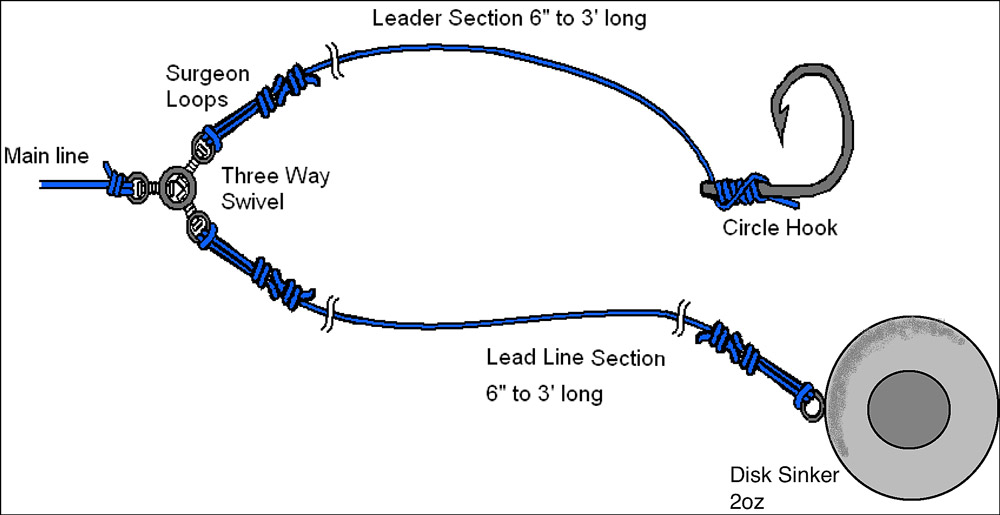
Understanding the variety of fishing rigs is only half the battle. The next step is to master the art of using them effectively. From my tackle box to yours, here are some tried-and-tested tips and common pitfalls to avoid. 🎣💡
1️⃣ Match Your Rig to Your Conditions 🌦️
Different rigs excel in different conditions. For example, use a Texas Rig when fishing in heavy cover to avoid getting snagged. Likewise, a Float Rig works well in shallow water where fish are likely to be feeding near the surface. Take the time to understand your environment and choose your rig accordingly.
2️⃣ Choose the Right Gear for the Job 🎣
While it might be tempting to use your fancy new rig right away, it’s crucial to match your gear to the fish you’re targeting. A rig that’s perfect for catching bass may not work for trout. The right rig, hook size, and bait can make all the difference between a day of fishing and a day of catching!
3️⃣ Practice Rigging at Home 🏠
Before you head out, take some time to practice setting up your rigs at home. This not only makes you more efficient when you’re out on the water, but it also ensures that everything is correctly assembled, increasing your chances of success.
4️⃣ Keep Your Gear in Top Shape 🔧
Rust and damage can lead to a broken rig, lost bait, or even worse, a lost fish. Regularly check and maintain your gear, replace old line, and ensure your hooks are sharp.
5️⃣ Learn from Mistakes 🔍
It’s easy to get frustrated when things don’t go your way, but every angler has been there. Use these moments as opportunities to learn and improve. Over time, these lessons will make you a better angler.
Common Mistakes to Avoid
- Wrong Rig for the Job: It’s essential to pick the right rig for the type of fishing you’re doing. Using a float rig in deep sea conditions won’t yield much success.
- Not Checking Local Regulations: Some locations have specific regulations about the types of rigs and bait you can use. Always check local fishing regulations to avoid fines or penalties.
- Not Adjusting Tactics: If you’re not getting bites, don’t be afraid to switch things up. Change your bait, your rig, or even your location.
🔶Fishing is as much a journey of learning as it is a pursuit of the catch. These tips should set you on the right path. Happy fishing, and remember, the best angler is a patient one! 🚀🐟
❓🎣 FAQs: Dive Deeper into the World of Fishing Rigs
🏁 Wrapping It Up: The Final Cast
The joy of fishing lies in the tug on the line, the splash of a catch, and the stories you get to tell. But behind every successful catch, there’s a well-thought-out strategy – and a key part of that strategy is choosing the right fishing rig. 🎣🏆
The magic of fishing is that there’s always something new to learn. From mastering the Basic Fishing Rig to exploring the versatile Texas Rig, each offers a unique way to interact with the underwater world. I encourage you to experiment with these rigs, understand their nuances, and find what works best for you. 🧪🐠
Remember, in fishing, as in life, there’s no one-size-fits-all. The rig that works wonders in one scenario may not be the best fit for another. That’s why it’s important to be adaptable, willing to learn, and always prepared for a bit of trial and error. ✔️❌
In conclusion, the right rig can transform a good fishing experience into a great one. Understanding and selecting the right rig isn’t just about improving your chances of catching fish; it’s about enhancing your connection with nature and enriching your overall fishing experience. So, rig it, cast it, and embrace the thrill of the wait – because every angler knows, it’s not just about the catch; it’s about the journey. 🌊💙
🔶As you embark on your next fishing adventure, remember these words: “Many men go fishing all their lives without knowing that it is not fish they are after.” – Henry David Thoreau. Enjoy the journey, friends, and may your lines always be tight! 🚀
📢 Hook, Line, and Sinker: Your Turn to Cast!
You’ve journeyed with me through the world of fishing rigs, learning the ins and outs, the do’s and don’ts. Now, it’s your turn to put these tools to the test and reel in your own stories. 🎣🌍
As we part ways, I encourage you to share this guide with your fellow fishing enthusiasts. Perhaps it’ll spark a conversation, a fishing trip, or even become a helpful tool in someone else’s tackle box. After all, knowledge is like bait; the more you cast it out there, the more you reel in! 🔄🐟
And I’m eager to hear about your adventures. What rig did you use on your last fishing trip? Did the tips mentioned here make a difference? Did you learn something new? Your experiences, insights, and stories are valuable to this community. So, drop a line in the comments below and let’s keep the conversation going. 🗣️👥
🔶Fishing isn’t just a hobby; it’s a community. It’s sharing stories at the end of the day, learning from each other, and being part of something bigger. So, let’s connect, share, and grow together. Happy fishing, friends! Let’s make a splash! 🚀🌊
Tags: #types of fishing rigs / #different types of fishing rigs / #types of bass fishing rigs / #types of fishing rigs for bass / #types of rigs for fishing / #best fishing rig bag / #best fishing rig kit / #best fishing rig organizer / #best fishing rig holder / #best fishing rig storage

I live in Tenerife (Canary Islands) for the last 10+ years and share my daily fishing experiences on my website. Many years of personal experience as a fisherman and the vast experience of my friends allow me to write professionally on any fishing topics (from choosing a flashlight and equipment to deep-sea fishing).
All of my advice is based on practical real-world experience and will be useful to both novice anglers and professionals. Read more about the author.
Affiliate Disclosure: FishReeler.org sometimes gets paid for listings, through sponsors or affiliate programs like Amazon, Ebay, Cabelas, Bass Pro Shop, Shimano, Daiwa, Rapala, Renn, Okuma, KastKing, etс. Clicking a link helps keep FishReeler.org free, at no extra cost to you!
About the author: Each article is verified by the fishing expert Sergio Smirnoff. The articles are written by professional and amateur fishermen with 20+ years of fishing experience.
Note: The views and opinions expressed in this article are those of the authors and do not necessarily reflect the official policy or position of any agency. The articles are for informational purposes only, share your opinions in the comments and join the fishing discussions, let's share our fishing experiences together!

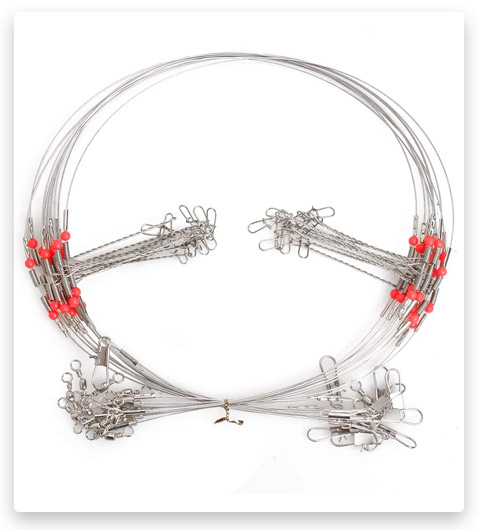
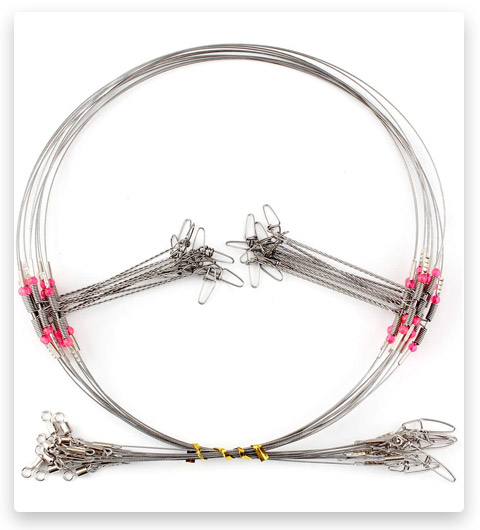
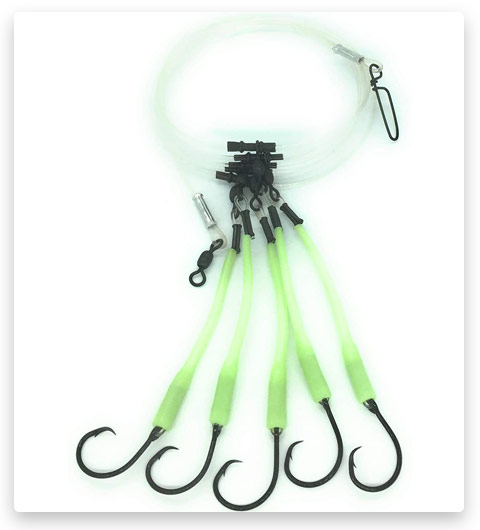
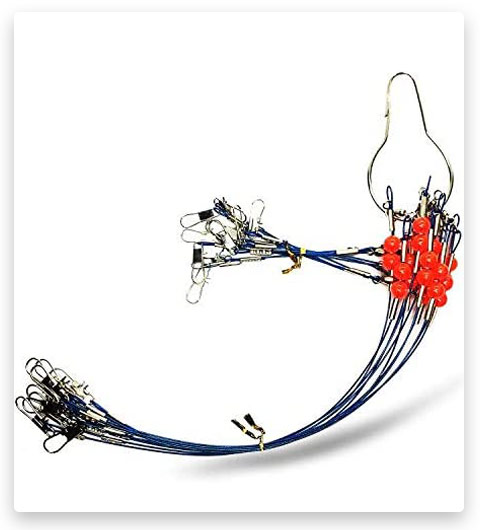
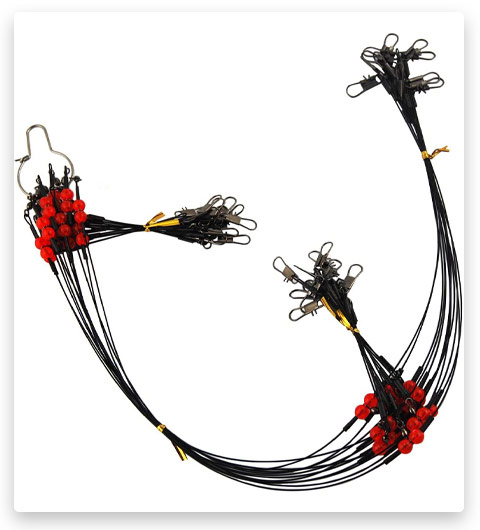
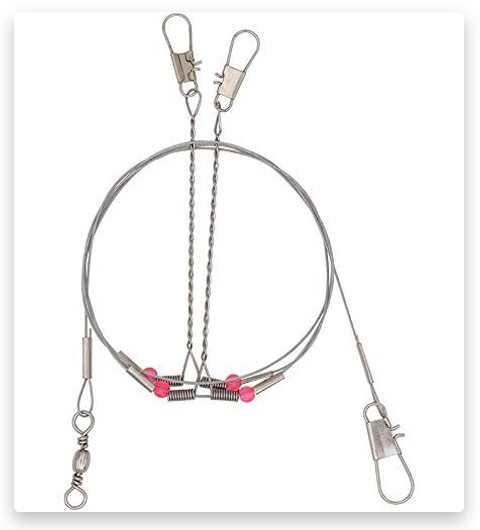
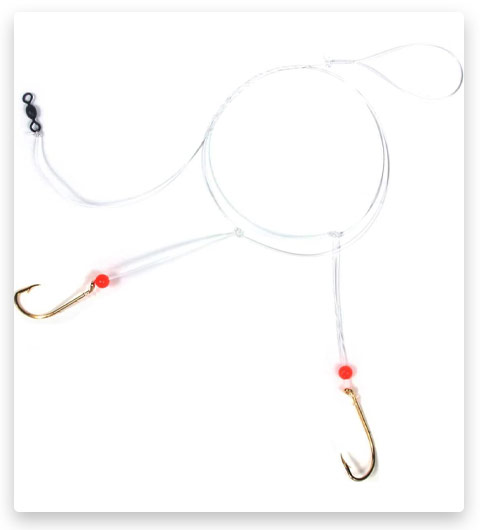
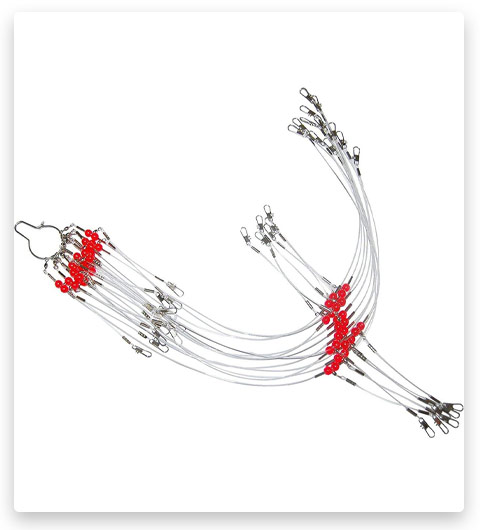
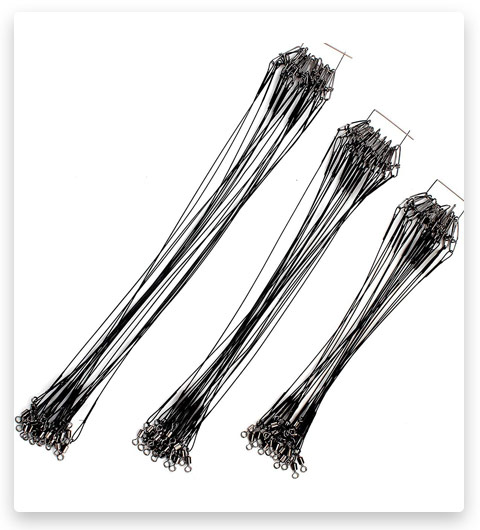
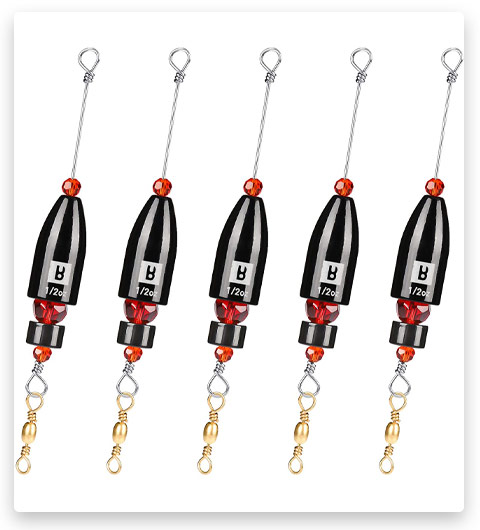
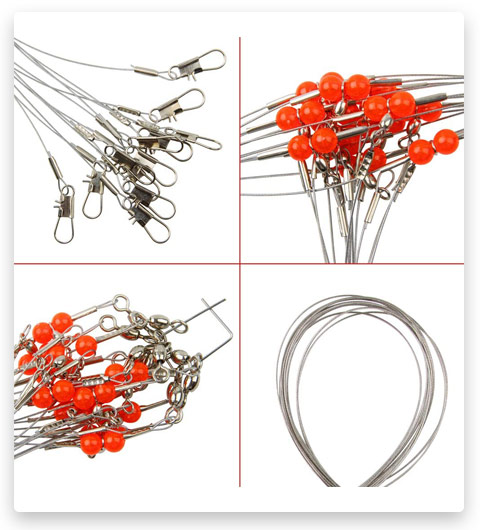
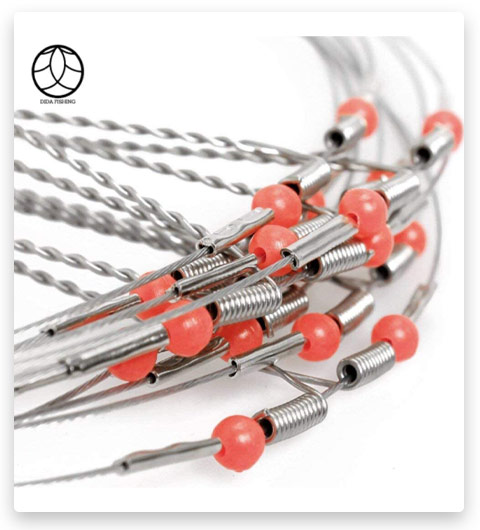
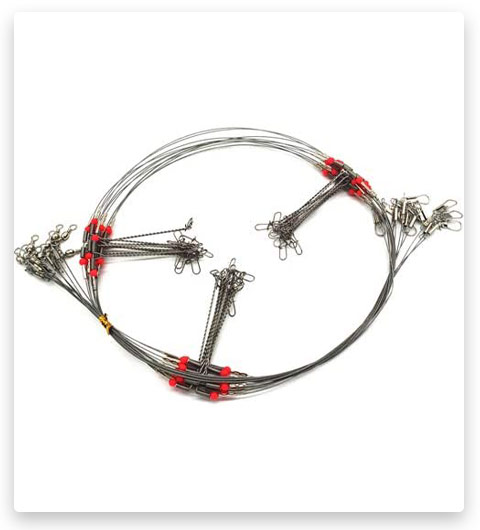
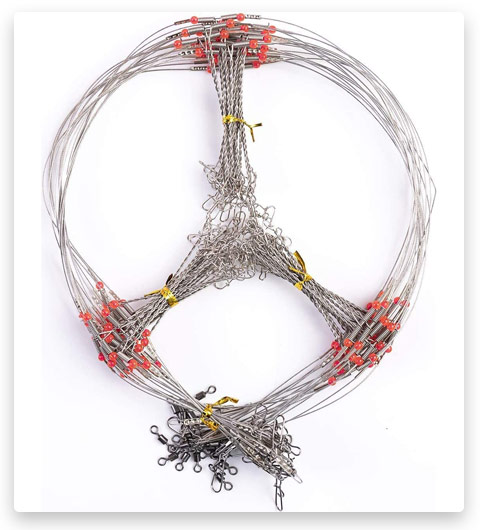
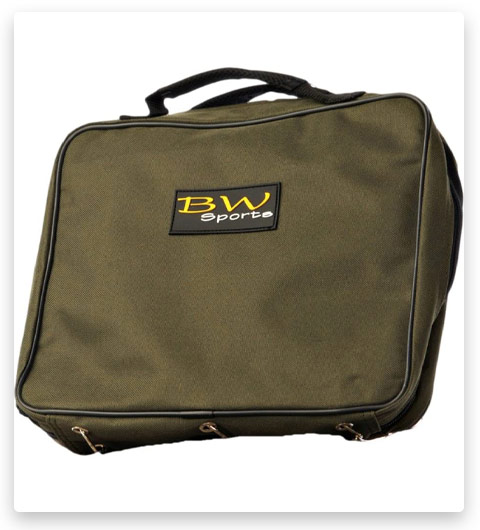
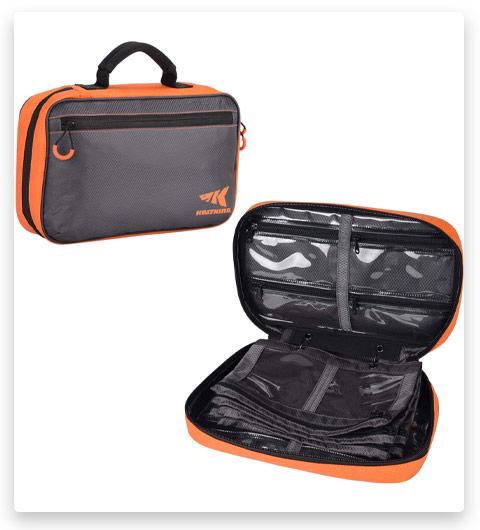
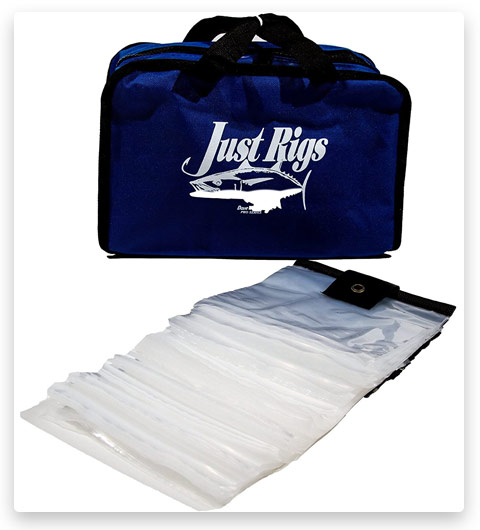
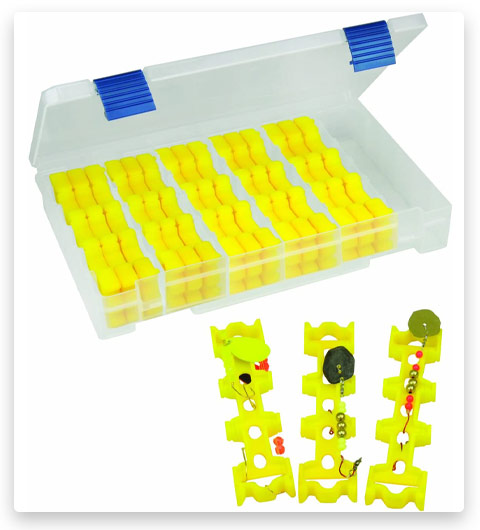
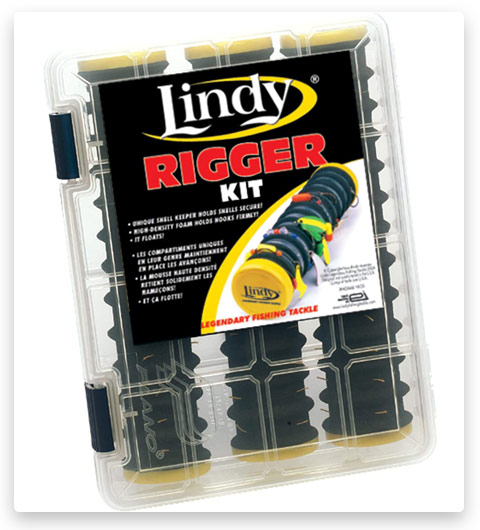
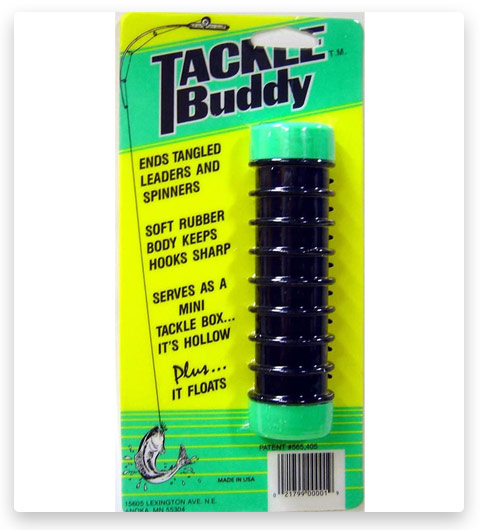
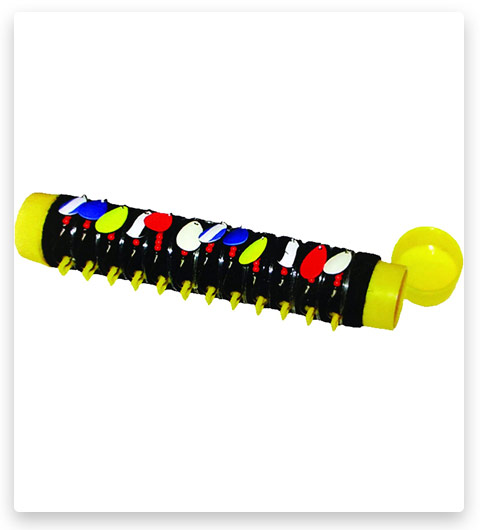
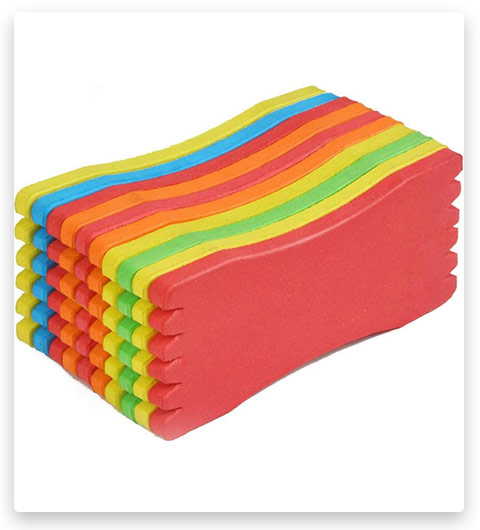

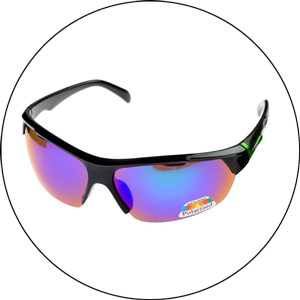
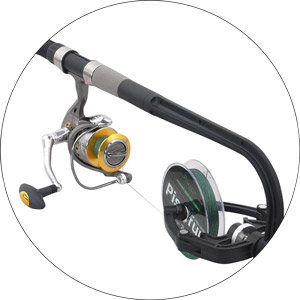
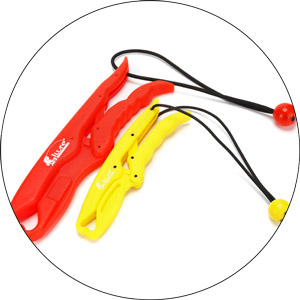
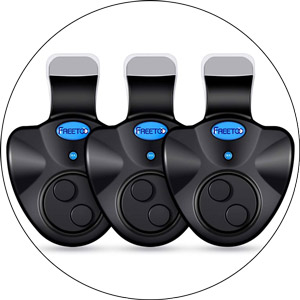
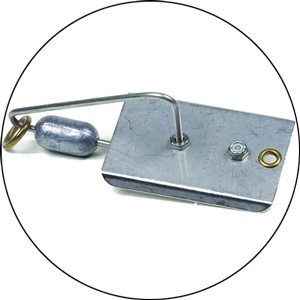
It was a pleasure to read your article. I agree with you that you presented fishing tackle plus boxes to carry it and make it as easy to use as possible. I’ve tried doing fishing rigs without swivels, balls, and rings, at the expense of complicated knots and connections.
As a result, the fishing line was broken both when the fish bite and during constant casting. The fishing line, even very thick (0.8 mm), was chafing and breaking. I lost a lot of fish, and now I use a lot of different devices, especially when there are a lot of hooks and fishing in deep water. Thanks!
Yes, it’s easier to buy ready-made tackle and fish without problems. If you make it yourself, it takes a lot of time, you need a certain experience, and plus a large set of components and parts. Order online and forget about the difficulties. Prices for the manufacture of such devices are paltry.
Hey there, thanks for sharing such a great and basic bass fishing presentation! As a beginner in the sport, I found your instructions very helpful.
I went out and picked up some Zoom Tickworms in Green-Pumpkin color, along with some 3/0 Offset Worm Hooks and 1/8oz and 1/4oz lead worm weights. Following your advice, I watched a few videos on how to tie on a Texas Rig and then tried it out on the bank.
I spent some time observing the water and shoreline, looking for anything that seemed “different” like a rock, tree, or patch of weeds. I cast my lure out past these objects and slowly dragged it back towards me using the rod tip. I tried to feel the bottom and move the lure in small increments, stopping to reel in the slack.
When I felt a “tick” or “bump” on the line or noticed the line had gone slack, I knew a bass had grabbed my worm. Excitedly, I set the hook and reeled in my catch!
Although my rod wasn’t ideal for bottom fishing, I was able to get some feedback and feel for what was happening beneath the surface. I can see how this basic presentation is the foundation for more advanced techniques in bass fishing.
Hi there, I’m a beginner in the world of fishing and I’ve been experimenting with different techniques to find what works best for me.
Initially, I tried the Texas rig using the exposed method which was easy to tie and fun to use. However, I found that I was missing a lot of hook sets and also experiencing gut hooks which made the catch and release difficult.
Then I discovered the drop shot technique, which is harder to tie, but allows for more precision when fishing a specific spot. I found it to be pretty effective and much easier to set the hook. However, I did have issues with the line breaking frequently from the hook or fish rubbing against it.
Currently, I’m using specific drop shot hooks that have a swivel above and below, making it much easier to tie correctly and less prone to breaking. I feel a little like I’m cheating, but I’m happy with the results.
Overall, I’m learning that fishing involves a lot of trial and error to find what works best for me. I’m looking forward to continuing to learn and improve my skills. Any advice or corrections are welcome!
Hello fellow anglers, if I had to choose only one presentation for a day on my favorite body of water, it would definitely be the drop-shot rig. This rig has proven to be very versatile for me and has helped me catch fish in various conditions.
However, I must admit that there are many other rigs out there that can be equally effective depending on the situation. In fact, I encourage you to try out different rigs and find what works best for you. To get you started, I have compiled a list of some popular rigs that I know of:
Keep in mind that some of these rigs are not necessarily considered “rigs” but are simply different ways of hooking a bait. I hope this list inspires you to try out some new rigs this year and see what works best for you. Happy fishing!